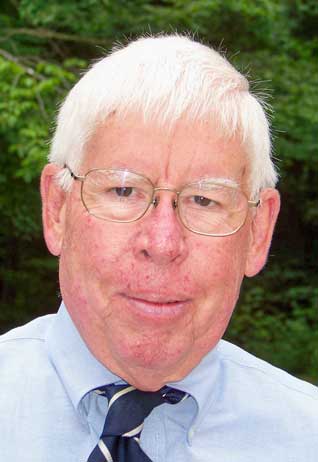
Financial advisers, insurers, automobile companies, Major League Baseball, government officials, educational institutions—the list of tarnished icons and leaders goes on and on. Regardless of their size or type, their shame spills over on to every one of us. But why?
How does Bernie Madoff impact somebody who didn’t lose his life’s savings? Why should AIG bother someone who didn’t invest? What does the General Motors debacle mean if you didn’t lose your job? Who cares about steroids unless you’re on the list of users? What impact does the conduct of the governor of South Carolina have on your daily life? What does it matter to you that the University of Illinois gave preference to applicants of the politically connected?
There are three reasons why these examples matter to every public relations/communications professional, all of which revolve around making it more difficult to conduct business:
• These seemingly unrelated issues have a common thread. They destroy trust. They poison the environment. They erode confidence. At the end of the day, that makes it more difficult to do business.
• Ask any public relations professional and they will tell you that when communication is lacking, misinformation is rampant. It’s fair to say that where trust is lacking, doubt fills the vacuum. Doubt always makes it more difficult to do business.
• When doubt grows, it eventually turns to anger. People lose perspective, clear thinking suffers and dignity disappears. All that also makes it more difficult to do business.
Public relations professionals might serve their organizations better if they devoted more time helping to create and sustain trust—even if it means that less time is dedicated to social media. After all, Twitter is not a strategy. It’s a platform that can be used for enhancing relationships and communicating information. But, in getting the order of things right, spending time building trust should trump learning how to use Twitter—the former must always be the priority, and the rest will fall into place accordingly.
If you look at the history of public relations, you will find words such as publicist, behavior, image and so on. In recent years, it’s been about reputation management. There is certainly nothing inherently wrong with that term, but the objective for all communications professionals should be to become known not as reputation managers, but as trust builders.
Nothing good happens until—and unless—an organization is trusted by its various stakeholder groups. In today’s environment, it is a tall order that calls for all communicators to lead in terms of doing what’s right, as well as resisting the temptation to cut corners in pursuit of short-term gain. That’s what real trust builders do.
In the same vein, in 2006 the Arthur W. Page Society published The Authentic Enterprise, in which authenticity was deemed the cornerstone of trust. The report called for “…four new priorities and skills for which the chief communication officer must now assume a leadership role.”
Those four priorities and skills were:
• “Leadership in enabling the enterprise with ‘new media’ skills and tools.”
• “Leadership in defining and instilling company values.”
• “Leadership in building and managing multi-stakeholder relationships.”
• “Leadership in building and managing trust, in all its dimensions.”
Ultimately, it is essential that communications professionals remember these priorities when carrying out their day-to-day responsibilities, as each is a critical component of being a trust builder.
And, being a trust builder means that:
• You value tomorrow even more than today.
• You tell the truth to your client or boss and that you have enough credibility so that person listens.
• You, as a public relations professional, are trustworthy.
• You are passionate about that role because you know that trust is at the heart of business success. PRN
CONTACT:
Davis Young is a former chairman of the PRSA Counselors Academy, author of the management book Building Your Company’s Good Name (AMACOM, 1996) and a principal in the communication training firm Meeker-Young LLC. He can be reached at [email protected].
